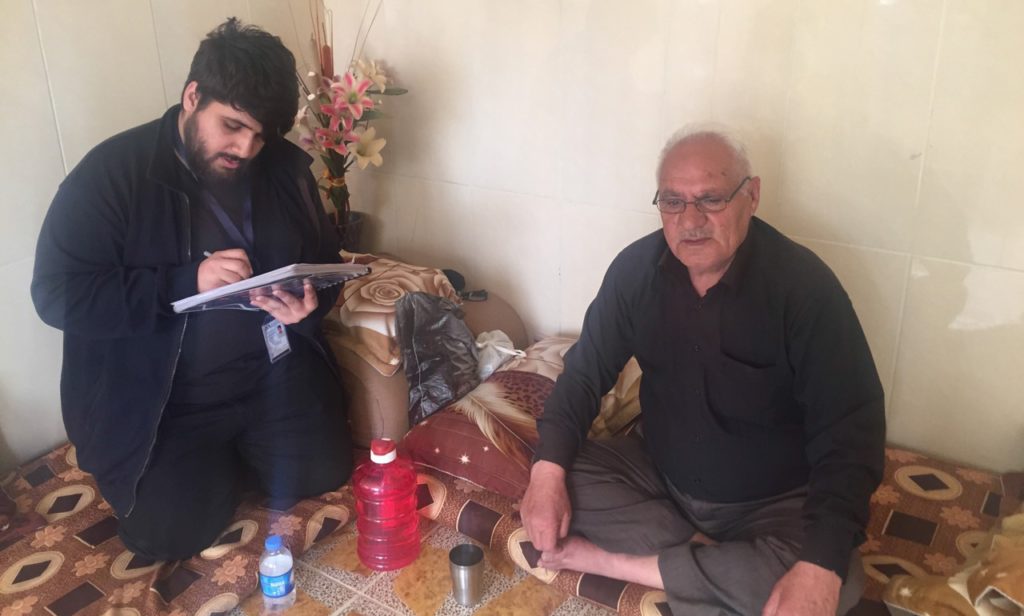Jameel Mohammed, aged 63 years, was forced to leave his home in Syria as a result of the war. The dire humanitarian situation inside the country is among the worst crises in recent history, and has forced some 5.6 million Syrians to seek refuge in neighboring countries. In Iraq alone, almost 250,000 Syrians are registered with the UN Refugee Agency (UNHCR). Fleeing from violence, persecution and socio-economic insecurity, Syrian refugees are confronted with a life of uncertainty when they arrive in host countries.
“Our situation is very bad. We had to move to Turkey before coming to Iraq about four years ago, as a result of ongoing shelling between the various armed groups, and when Islamic State fighters were closing in on our town. ” Today, Jameel is living with his wife and two sons in northern Iraq. Both he and his wife have had a cardiac catheterization operation, and Jameel requires medicines regularly, while one of his sons is living with Down syndrome. Due to their poor economic situation, Jameel has struggled to make ends meet through work at restaurants and malls since he arrived at Kasnazan in Erbil.
With support from the U.S. Department of State’s Bureau for Population, Refugees, and Migration, International Medical Corps has been providing free treatment and medications to Jameel and his wife at a primary health clinic in Kasnazan Cultural Center. “The medicines we need cost about 50,000 [Iraqi] Dinars. Without this support, we would not have been able to afford the treatment or medicines, in addition to our electricity and other utility bills that we have to pay on a monthly basis.”
To this day, Jameel continues to receive his medicines on a regular basis and is helped to manage his condition at the primary health clinic. A mobile medical team deployed by International Medical Corps visits this clinic and other health centers on a daily basis, providing free-of-charge care to refugees and vulnerable Iraqis in need of essential health services.
Jameel expressed his appreciation for the assistance provided by donors like the Bureau for Population, Refugees, and Migration that enable such service provision. He said, “I would like to say thank you and wish them all the best and prosperity in this life.”
From his side, Jameel, is constantly trying to give back to community: “Refugees are in a terrible condition and do not have sufficient means of livelihood.” Jameel added that on his scheduled visits to the health center, he arrives as early as 7 am to help organize people waiting in line for the medical team to arrive: “Whoever comes to me and is in need of medical help, I refer them to this clinic.”
